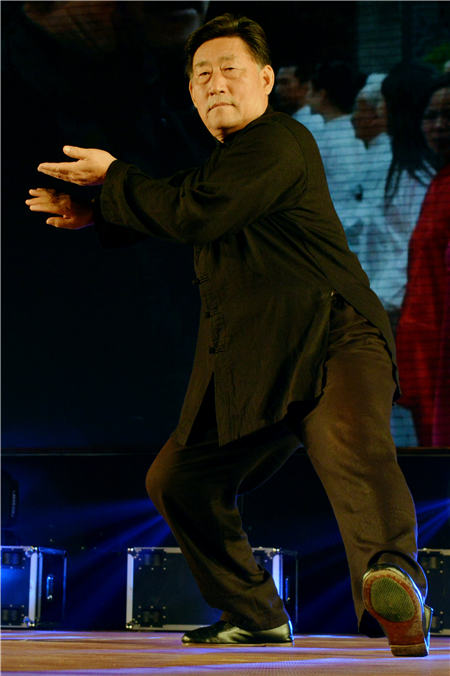 |
|
Chen Xiaowang [Photo by James Healy/China Daily] |
"To train this kind of talent, we need to set up a college or university," Chen said.
"You will not be a good coach if you are not well-educated," he added. "Some people outside of our village think we are only warriors. People who are not well-educated are thought of as crude."
On the contrary, Chen and the three other "tigers" have long pursued the tradition of "the pen and the sword" - the notion that the best martial arts masters are both warrior and scholar.
His son, Chen Bin, who studied at university in the United Kingdom and speaks fluent English, said a broad education and knowledge of the world beyond China are crucial for the generations that will continue to spread tai chi.
"Most of my family, my (tai chi) brothers, are still similar to my father's generation. They concentrated only on tai chi training most of their lives" and did not focus enough on furthering their education, he said.
By contrast, he said, earlier generations of villagers - from Chen Wangting, who created tai chi in the 1600s, to Chen Xin, who wrote about the art in the early 20th century - "didn't just concentrate on tai chi training. They learned theory and philosophy as well. They were very knowledgeable men. You can tell from their poems and theories that they were deep."
Master Chen Bing, 44, said: "Learning is very important for this generation. We cannot just stand in one circle, the family, but must go out to the world."
Wang Haizhu contributed to this story.
|
|
|
|
|
|
|
|
